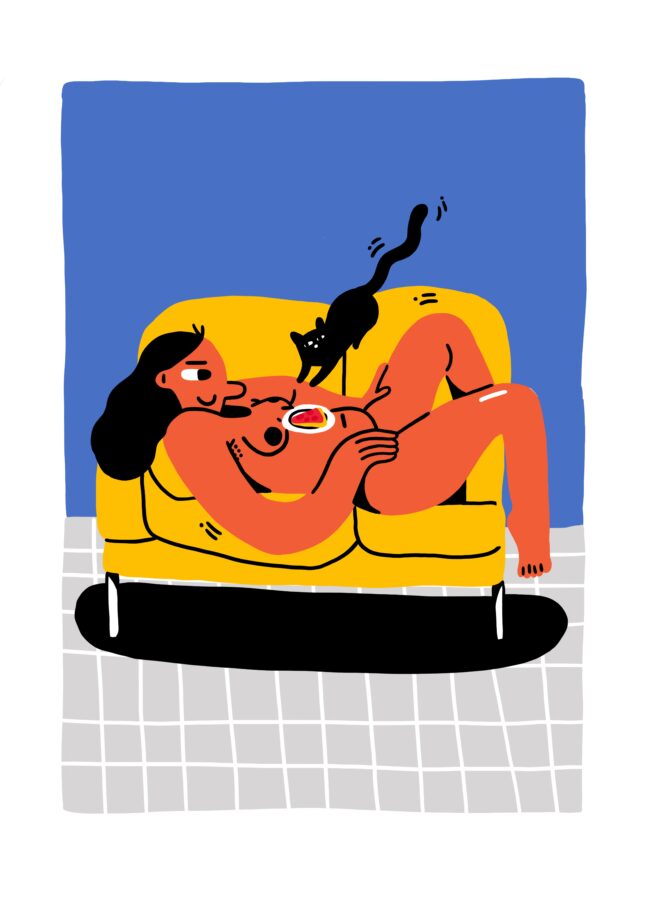

For her first exhibition at that’s what x said, Julia Da Costa investigated self-care and developed her own understanding of the concept through her own experiences, her traumas and questionings, that she staged for this new body of work.
The notion of self-care first came from Medicine and was then popularised in the 1960s by the Black Panther Party, a revolutionary movement for the freedom of black people, fighting for their access to fundamental rights, healthcare, security and against police brutality. Ericka Huggins, activist and ex-leading member of the Black Panthers, encouraged self-care as a means of survival for black people, becoming a way for them to reaffirm their most basic needs. According to Huggins, self-care is defined by the acceptance of one’s suffering, experiencing it and finding the necessary time and space to heal both bodies and minds. However, since the 2010s, the concept has become mainstream and an ultra-positive approach has emerged. This new perception incites people to ignore their traumas through a form of toxic positivity that silences psychological distresses and represses emotions.
For Self-care and Canapé, Julia Da Costa introduces her own understanding of self-care though her lived experiences. According to her, self-care means expressing and fully acknowledging one’s emotions, to welcome them and listen to one’s inner Self. It requires the bravery to truly discover oneself, and to allow time to experience one’s feelings. It calls for patience and kindness to respond to one’s ailments, rather than avoiding negative emotions with a “positive” and productive activity. For the artist, self-care can be linked to the idea of self-parenting, where the subject is their own parent. For her, everyone has the responsibility to educate and heal themselves to be able to grow. Julia Da Costa develops these ideas through a new body of work on paper, in which she illustrates her own life with a touch of humour and vulnerability. For her solo exhibition, the artist stages colourful and stylised feminine characters in her distinct style, inspired by the graphic novel universe. Her texts play an important role in her artworks, her slogans act like propaganda posters, striking the viewer with tenderness.
Julia Da Costa is a visual artist and illustrator born in France and based in Portugal since 2016. After studying Design in France, she moved to Lisbon to study Clinical Psychology and learn Portuguese. In her work, Julia Da Costa focuses on mental health, about which she created a series of comic strips. In 2021, she published Pompette, a graphic novel on drinking and alcoholism. Today, she uses her work to look at her life, most specifically from her own gaze as a ciswoman, delving into her conception of femininity, her identity as an intersectional feminist with a disability and her mental health, approaching all of these with a personal touch of sarcasm and optimism. Her work is exhibited in multiple galleries in Lisbon, Porto and Brussels.
Lorsque vous visitez un site Web, il peut stocker ou récupérer des informations sur votre navigateur, principalement sous la forme de cookies. Contrôlez vos services de cookies personnels ici.